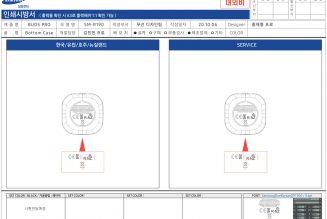Vivaldi announced today that it’s updating the desktop and Android versions of its Vivaldi browser with the ability to block annoying cookie preference pop-ups. Thanks to the passage of the European Union’s General Data Protection Regulation (GDPR), you’ve probably had to click through at least one dialog box asking if you’d like to manage how a site tracks you. Vivaldi’s new update lets you avoid those notifications — with some major caveats — while theoretically still keeping you safe from tracking.
Vivaldi’s logic for the new feature, affectionately called “Cookie Crumbler,” is that while giving users control over how they’re tracked is good, doing so through a pop-up “leads to clicking ‘allow’ or ‘accept’ without realizing that unwittingly users just gave permission for trackers to create behavioral profiles about them,” Vivaldi writes.
:no_upscale()/cdn.vox-cdn.com/uploads/chorus_asset/file/22476438/Screen_Shot_2021_04_28_at_1.05.47_PM.png)
Vivaldi’s built-in Ad Blocker can theoretically already handle hiding users from the various tracking methods deployed by sites, so Cookie Crumbler is about removing the annoying hangers-on — the pop-up notifications that direct users to customize how they’re tracked, if at all. Users with an updated version of Vivaldi (version 3.8 as of today) can enable Cookie Crumbler by going to Settings > Privacy > Tracker and ad blocking > Manage sources > Remove cookie warnings lists. The same feature can be enabled on the Android version of Vivaldi under the same menus.
:no_upscale()/cdn.vox-cdn.com/uploads/chorus_asset/file/22476434/vivaldi_browser_cookie_blocker_setting_1.png)
Cookie Crumbler pulls from two separate third-party block lists to work, but “this is not a perfect solution, as there will be a few websites that use other tactics to obtain cookie consent,” Vivaldi says. Enabling Cookie Crumbler may also make some sites completely inaccessible on desktop and mobile, depending on if the site locks some functionality behind interacting with the cookie dialog. Losing access to some websites is a major inconvenience for a web browser that’s designed to visit websites, and that may be why Cookie Crumbler isn’t enabled by default.
Vivaldi is also taking an even stronger stance on Google’s cookie alternative, FLoC, or Federated Learning of Cohorts. FLoC builds cohorts from users’ browsing history to sort them semi-anonymously by interests or qualities for websites looking to sell ads. It seems less directly invasive than a traditional cookie, but also hugely dependent on browser makers implementing it correctly for it to be safe.
Vivaldi is decidedly not okay with Google’s implementation of FLoC and is not enabling it in its browser, despite relying on Google’s Chromium codebase. With today’s updated version of Vivaldi, it’s also blacklisting the FLoC component required for Google’s current test of the ad technology, removing it from browsers that might already have it downloaded and preventing it from being downloaded going forward.
Vivaldi 3.8 also adds new customization options for the browser’s Panels feature (think SlideOver in iPadOS but for websites) and a new keyboard command for adding bookmarks. The Android version of the app can also now switch between the 41 languages Vivaldi supports rather than relying on Android’s built-in language settings.










